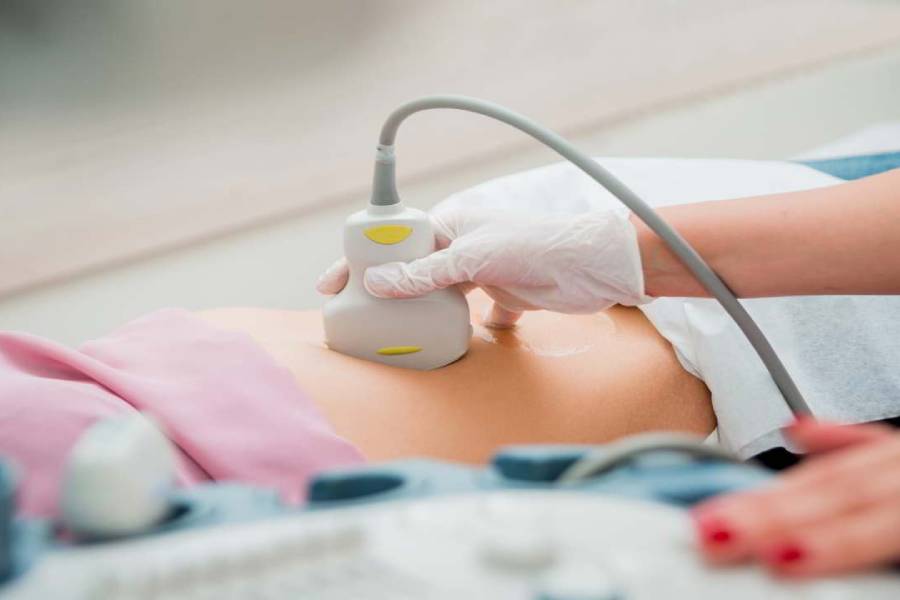Follicular Study:
Your doctor suggests a regular follicular study every month? and you are looking for a Follicular Scan in Punawale, Hinjewadi, and nearby areas. Then you are at the right place, Dr. Shraddha Galgali at her clinic Dr. Shraddha Excella Women’s Care Clinic, Punawale provides follicular study test service at an affordable cost. On this Page, Dr. Shraddha Galgali – The best infertility Expert in Punawale, Pune explains all about the follicular study. Let’s See
What is Follicular Study?
Follicular Study is an important part of fertility that is involved in the development and growth of ovarian follicles in women’s ovaries. women’s ovaries contain several sacs filled with eggs. That’s called the follicle. With help of follicular studies, we can get a clear time for egg retrieval or insemination that’s why the chances of successful pregnancy increase.

When it is done?
The follicular study is done during women’s menstrual cycle. The study is done between 10 to 14 days, starting from the first day of bleeding. It’s also done to diagnose all the problems related to ovulation.
How does follicular study work?
It is a serial ultrasound of the vagina which takes 10 to 15 min to complete. The follicle starts to develop from the 9th day of the menstrual cycle. The scans continue until the follicles have disappeared, and ovulation has started. then the doctor advises pairing to have intercourse. The doctor checks the size of the follicle. also, use the doppler scan to check the blood flow of the follicle and wall of the uterus. the mature follicle is between 18-25mm and the size of the uterus wall is more than 10mm is supposed to be good for pregnancy.
Advantages of Follicular Study?
A follicular study shows the following advantages:
- The follicular study helps to doctor to diagnosing the development and growth of the follicle
- Helps to determine a good time for conception
- helps in the diagnosis of infertility
- helps doctors adjust medication
- provides a non-invasive monitoring method
- Follicular study is important for both doctors and couples to diagnose all problems related to follicles.
The success rate of follicular study:
People often have unrealistic expectations from follicular studies. One needs to know that the success rate is only 10%. Sometimes these scans can be extremely stressful for the couple. Doctors are often too casual while suggesting these scans as they tend to forget the strain it causes in a marital relationship. It is advisable to have only one cycle of ovulation tracking. It is helpful enough as it teaches you to correlate the scan with your body signals such as cervical mucus and ovulation pain. You can track ovulation discreetly at home which increases the chances of pregnancy rather than getting overburdened with the pressure of scans.
Why Choose Dr. Shraddha Galgali for Follicular Study?
- Experience and Expertise: Shraddha Galgali is a renowned and qualified Obstetrician and Gynecologist from Punawale, Pune with an experience of more than 8 years. She is Expertise in Follicular Study in Punawale, Pune.
- Patient First Approach: Shraddha Galgali and her Team always preferred the patient’s first approach.
- State of Art Equipment: Shraddha’s Excella Women’s Clinic is equipped with advanced equipment
- Trained Staff: Our Hospital staff is well-trained and supports the patient at every stage.
- Affordable options Shraddha Galgali routinely recommends the least expensive and invasive treatment option available.
Frequently Asked Questions (FAQ's):
Follicular Study is an important part of fertility that involved the development and growth of ovarian follicles in women’s ovaries.
It helps to diagnose the size and development of the follicle. which plays important role in getting pregnant.
the follicle is between 18-25mm and is supposed to be good for pregnancy.
The cost of a follicular study range from INR 300 to 3000. It also varies on the doctor’s suggetion.
The total time for follicular scans is around fifteen to twenty minutes, but the preparations need to start a few hours before the scan. It can even take only ten minutes for the entire procedure if you cooperate with the doctor and follow the instructions of the sonographer. Usually, four to six scans take place in one in one cycle to accurately predict the time of ovulation.
